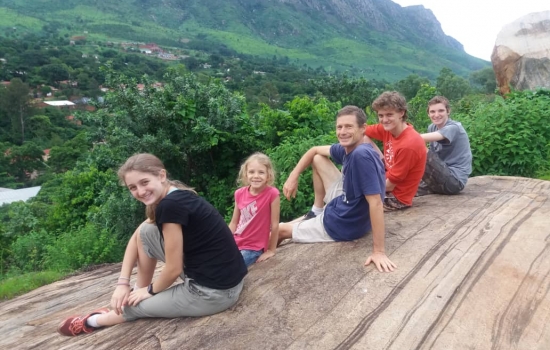Copyright © TMS Global
TMS Global
PO Box 936559
Atlanta, GA 31193-6559
800.478.8963
Our EIN number or Taxpayer Identification Number is 58-1546441.

Even before the coronavirus pandemic, children of cross-cultural-workers, also known as third culture kids or TCKs, were experiencing life through a unique lens. When the world changed due to COVID-19, they encountered plenty of challenges. But they also may have been more prepared to live through times of uncertainty.
Shawn Ramsay, a TMS Global Coordinator for TCK Care, helped launch the TCK focus in the Member Care department 13 years ago. She says when kids travel with their CCW parents to a new place, the kids experience a lot of “yays” and “yucks.” For example, TCKs face frequent goodbyes as they leave people and things. But they experience lots of hellos, too, as they make new friends and new memories. Ramsay says it’s important for families to talk about both the good and the bad.
“Don’t, by your actions or your words, tell your kids to stuff the difficult things and only talk about the positives,” Ramsay tells parents. “It’s good to hear both.”
When the pandemic hit, Ramsay says, TCKs and their parents encountered a variety of “yucks.” Some had to participate in school over Zoom or WhatsApp while using a language they were still learning. For others, it was difficult to be separated from extended family members amidst worries over the virus. A few families got stuck in the United States, which is no longer their home. Others weren’t able to come back to the US.
Some families experienced life in places with strict lockdowns. Joe and Heather Miller* serve in the Middle East. For several months, they and their two kids were not allowed to leave their apartment at all in the evenings or on Fridays. But the most stressful part of the pandemic, the Millers say, was sending their daughter to the US to attend her first year of college and not being able to join her.
“Everyone’s lost something during COVID,” Joe says. “I think that was the big thing for us, losing that experience.”
Joe says because lockdowns were so strict, he and Heather worried about social interaction for their teenaged son, Ethan.* Meeting with friends online to play games helped him stay connected.
TMS Global TCK Care Coordinator Paige Kolb says technology has been a blessing. In 2020, along with providing resources and support for families, staff facilitated monthly Zoom calls with TCKs. They also created WhatsApp groups for middle school, high school, and college-aged kids.
“We are more relationally connected with our TCKs,” Kolb says.
Twenty-one-year-old Christopher Babcock, speaking from his parents’ home in Malawi, says as a TCK, long-distance friendships are nothing new. “I think it’s been helpful to already have friends who we communicate with from afar. It wasn’t total whiplash to go into the pandemic and not know how to survive without seeing your friends constantly,” Babcock says.
Babcock had been attending university in Canada when the pandemic hit and returned to Malawi in March of 2020. His brother, who was originally going to do a gap year, stayed home, too. The boys’ parents, Steffi and Dean, and two sisters say it was a blessing to have everyone together.
Dean says that TCKs tend to be very resilient and learn how to roll with the punches, which has helped his family deal with the pandemic. Steffi says many of the things people had to give up in North America due to COVID-19 were things their family was living without already.
TCK Care Coordinator Paige Kolb notes that TCKs already know how to pivot and be flexible and are well acquainted with grief and loss. She hopes that because of the pandemic, people will have more empathy for TCKs.
“We’ve all experienced some level of grief through this,” Kolb says. “And it can be a bridge for deeper connection and understanding.”
Photo: Stephanie, Elianna, Dean, Christopher, and Jonathan Babcock hike on a mountain behind their house in Malawi.
*Pseudonyms are used for security reasons.